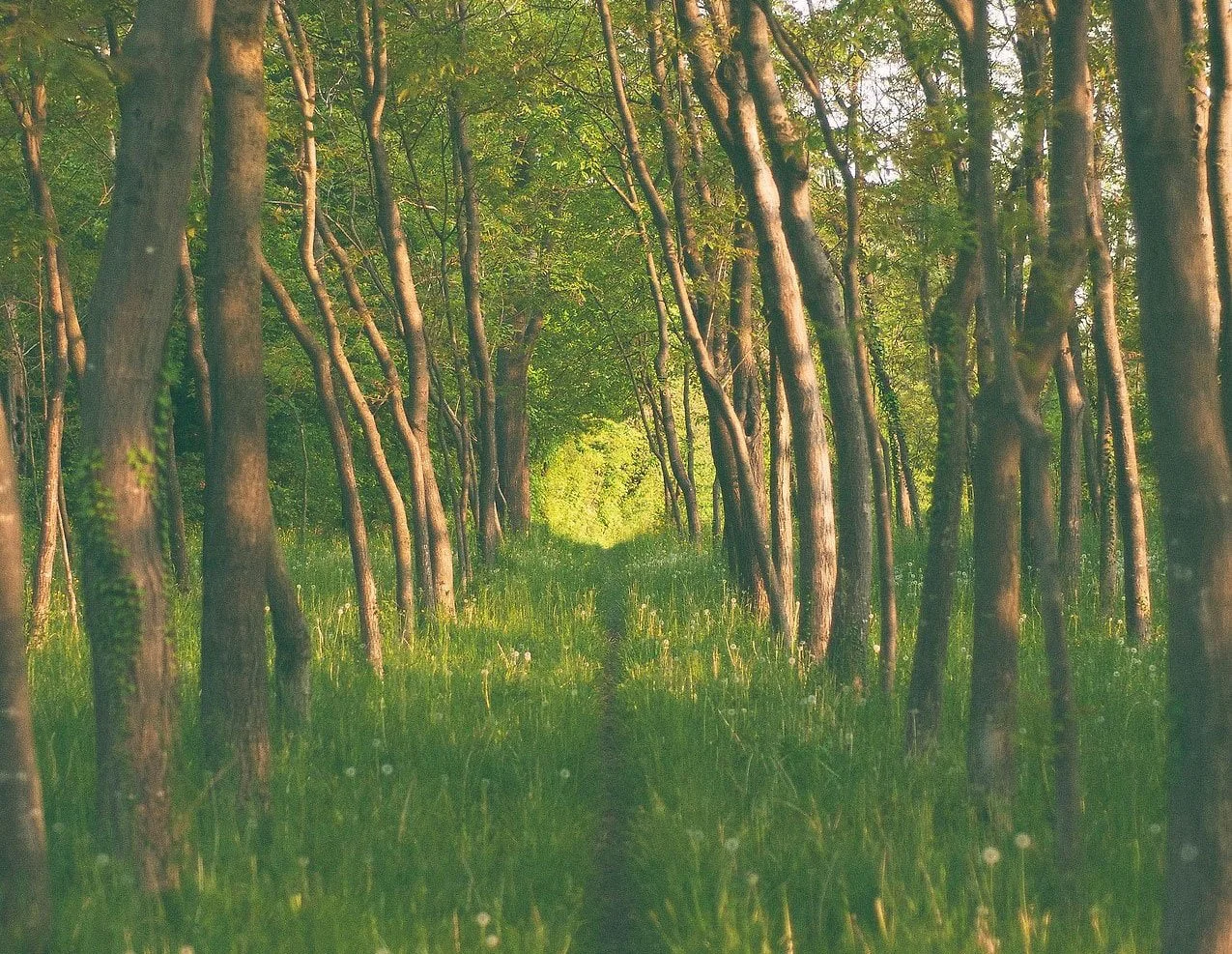Sophie invites us to embrace rot and decay, to welcome our demons to the dinner table, and to prepare for uncertain futures with tenderness. Sophie provides a route to overcome the death-trap that is self-righteousness, instead prioritizing humble complexity and surrender to relationality.
Read MoreYoalli brings us to the Chacahua-Pastoría Lagoons in Oaxaca, Mexico, to investigate deep connections with land, ongoing colonial violence, and the grief that comes alongside loving a place; a heartening conversation about the importance of ecological grief, rage, and sadness.
Read MoreMimi’s work is grounded in the question: “How do we find new ways to talk about what hurts?” Flipping diagnosis on its head, Mimi guides us to find new ways to name what we feel and to decolonize the language of feeling itself.
Read MoreBrett shares how mass-incarceration and climate change are not crises of the individual, but of our culture. The abolitionist imagination may be the key to a collective future– as Brett reminds listeners that one can be both practical and utopian.
Read MoreBayo Akomolafe guides listeners on a journey to lose oneself and leave behind the ties that bind us to world views that do not serve humanity’s wholeness. Bayo challenges us to lean into the “political un-project” that is fugitivity, blurring societally-imposed binaries, in order to better understand the human territory and to make more-than-human sanctuary through post activism.
Read MoreDr. Carroll pushes back against dominant settler histories about Cherokee migrations and relations to homeland and provides insight into what audience members ought to glean from Indigenous philosophies imparting practices of deep reciprocity, responsibility, and relationship to the land and each other.
Read MoreAlexis elucidates that it is only through the messy process of owning up to these broken relations throughout time and seeing how we might participate in and take on culturally appropriate relations of repair, responsibility, friendship, and comradeship in the struggles for liberation that we can survive these times.
Read MoreDr. Osorio guides us into a fuller understanding of aloha by returning the commodified phrase to the more extensive understanding of aloha ‘āina, wherein the possibilities for other worlds are not only born but remembered and recalled from the long history of sovereign Hawai’i and traditional Hawaiian teachings and lifeways.
Read MoreWe discuss Kyle’s body of work on dystopia and fantasy in climate justice, the reproduction of settler structures, Indigenous science, vulnerability discourses, and “decolonizing allyship.” Kyle concludes with the ever present reminder that our work must be rooted in consent, reciprocity, and trust.
Read MoreAyana and Dr. Max Liboiron explore the notion of plastic as kin, oil and petrochemical subsidies, the body burden of plasticizers, the historical construction of disposability, the appropriation of Traditional Ecological Knowledge in academia, the feasibility of recycling, and more.
Read MoreBayo invites us to pause and abandon solutionism, step back from the project of progress, and dance into a different set of questions: What does the Anthropocene teach us as a destabilizing agent that resists our taming? What happens when we unfurl into a space of slowness and relinquish human mastery to a wider cosmic net of relations?
Read MoreDr. TallBear and Ayana confront western science’s continued appropriation of Indigenous sexuality, ancestry, and creation while unearthing our universal desires for love and belonging.
Read MoreDonna invites us to wander in the colorful worlds of science fiction, play with story, and dig through the compost pile, offering up powerful tools and practices needed for humans and nonhumans alike to “live and die well together” on Earth.
Dr. Patricia Kaishian encourages us to think of mycology as a revolutionary and political practice. Diving into queer mycology, we see the ways that fungi challenge binaries of gender, family structure, and even traditional biological classification.
Read MoreLopez begins with the material dimensions of our digital footprint, then moves into a deeper conversation around media and tech monopolies, desensitization in media, sensory stimulation, and the correlation between fake news, climate denial, white nationalism, and petro-masculinity.
Read MoreTyson calls us to unbrand our minds and deeply interrogate where we are sourcing our thoughts from, the ramifications of becoming a trauma-obsessed society, and how to identify environments for emergence.
Read MoreDr. Prescod-Weinstein challenges us to not fixate on our fear of a perishing night sky, but instead, look at how the night sky can be a part of liberation discourse. Recognizing this value, Dr. Prescod-Weinstein outlines the right to the night sky and what comprehensive accessibility to know and love the night sky means.
Read MoreWe explore climate colonialism, reparations, carbon removal, and a real “just transition” with guest Olúfẹ́mi O. Táíwò. Our conversation reminds us that while climate colonialism is unfurling before us, there is a myriad of tangible ways countries and movements across the so-called global North could begin making reparations.
Read MoreNatasha discusses the necessity of finding non-human guides, the responsibility we have to make room for plants, anthropomorphism, restoration ecology, and reconfiguring our relationship to the future.
Read MoreAnjali shares how in order to truly support liberatory work and movements, we must unlearn, otherwise, we will continue to create harm. In recognizing our illusions and perceptions, we are able to ensure that our impact and intentions are in alignment.
Read More








![KYLE WHYTE on the Colonial Genesis of Climate Change [ENCORE] /295](https://images.squarespace-cdn.com/content/v1/5403e5dbe4b04db10d1d362b/1578942140884-JHGF2QH6QLC8U6SWI4GB/154_KyleWhyte_ForTheWildPodcast_Image.jpg)
![Dr. MAX LIBOIRON on Reorienting Within a World of Plastic [ENCORE] /294](https://images.squarespace-cdn.com/content/v1/5403e5dbe4b04db10d1d362b/1656616915606-ZC6TIYNE6XE4CF4N77IO/Max-Liboiron_For-The-Wild-Episode2.jpg)
![Dr. BAYO AKOMOLAFE on Slowing Down in Urgent Times [ENCORE] /285](https://images.squarespace-cdn.com/content/v1/5403e5dbe4b04db10d1d362b/1651616312541-1USTQVEB6WAGL3I1V6SM/Dr-Bayo-Akomolafe_For-The-Wild_Episode_Encore.jpg)
![Dr. KIM TALLBEAR on Reviving Kinship and Sexual Abundance [ENCORE] /284](https://images.squarespace-cdn.com/content/v1/5403e5dbe4b04db10d1d362b/1650910142671-NXJRMKCUQ3EOND4CVTGD/157_KimTallBear_ForTheWildPodcast_Episode2.jpg)
![DONNA HARAWAY on Staying with the Trouble [ENCORE] /269](https://images.squarespace-cdn.com/content/v1/5403e5dbe4b04db10d1d362b/1564763100262-TYWKVVZNW8UOJTSNWM9P/131_Haraway_ImageOnly-Joe-Meiser-1x1.png)






